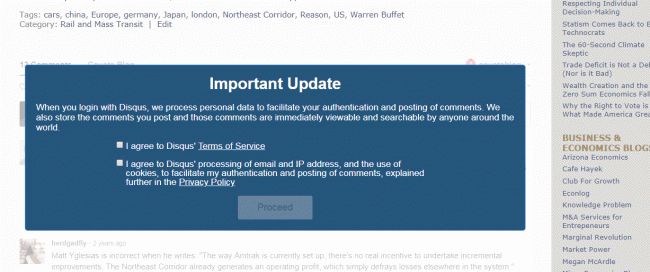Yelp Has Surpassed Even Toner Sales People as My Most Persistent And Irritating Cold Callers
For some reason, Yelp has invested in a massive spamming infrastructure and has become easily my most frequent and persistent source of spam calls and emails. I went through my email trash (unfortunately it clears itself out every few months) but I still found a dozen different Yelp people contacting me. Each of them tends to contact me with at least 2 calls and 2 emails before they go way, but if I respond (even to tell them to get lost) they take that as an invitation to contact me more.
Perhaps I have a unique problem -- I actually operate over 150 sites that could potentially be reviewed, and my gut feel is that each of these has been assigned to a different person and they all feel the need to call me without any cooperation between them. For someone who is looking for more ways to consolidate an already complicated mass of reviews on the web, a review company that cannot coordinate its contacts with a single company is unnerving. Further, I have to say that I have a distrust in what is essentially an online advertising platform that resorts to cold-calling to advertise their business. If they don't trust their own platform to get the word out adequately, why should I?
There are other problems, but here is a sample of my communications with them when I made the mistake of actually responding:
Yelp:
Hi Warren,
I am sorry to hear this [I told them to stop spamming me], you actually have 3 amazing reviews on your page for Honeycomb Campground. I am sorry you have been contacted by many different Account Executives from Yelp.
The reason we keep reaching out is because we have consumers every day on Yelp in Grant looking for a campground and see this as a great opportunity for you to fill your spots. All I am asking for is the chance to show you how we can generate more traffic onto your page.
Again if you really would like to be removed from out call list I can do so, and I am sorry to hear that.
- If it were just one person calling, it would be OK. But I have over 100 locations and it seems like a different yelp person harasses me about every location. And as soon as I get one to go away, the next one calls. Frankly, you are worse than toner sales calls
- You do not work with my review aggregator (reputology). I understand you are likely trying to force everyone to your platform, but I cannot work that way. Especially for a review company that is a trivial part of my business
- The site you mention with 3 Yelp reviews has 227 Google reviews and 281 Facebook reviews and 16 in Tripadvisor making Yelp less than 0.6% of my review activity
Postscript: I likely am also influenced by my past run-ins with Yelp where I suspect they suppressed my accurate reviews of a large company due to legal threats from that company.



